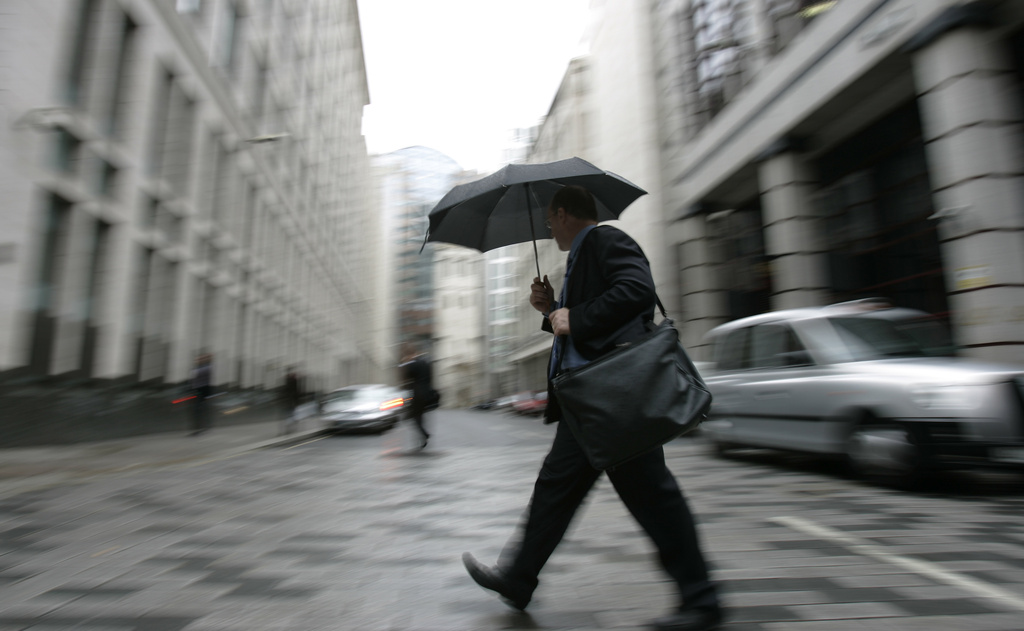Swiss move away from “tax haven” status

Switzerland is well on the way to getting itself removed from a “grey list” of tax havens, after parliament approved a series of tax agreements.
The House of Representatives on Thursday followed the Senate in overwhelmingly accepting a package of ten double taxation agreements drawn up in accordance with the demands of the Organisation for Economic Co-operation and Development (OECD).
The countries with whom the agreements have been reached include the United States, United Kingdom and France.
There is nothing new about double taxation agreements in themselves. Switzerland has concluded dozens of them over the years. Their main purpose is to ensure that businesses based in two different countries and individuals resident abroad do not get taxed twice.
But the agreements placed before parliament contain an important new element: they were drawn up to take into account Article 26 of the OECD’s Model Tax Convention, under which countries agree to share relevant data in cases of suspected tax cheating.
This means that Switzerland will no longer restrict its administrative assistance to cases of presumed tax fraud (which involves the falsification of documents). It will also provide information where tax evasion is suspected – in other words, where money not declared to national tax authorities has been deposited in a Swiss bank.
Until now, Switzerland had been the only country which made a distinction between fraud and evasion.
Getting off the “grey list”
Although the new obligation deals yet another blow to Swiss banking secrecy, the government decided to adopt it in March 2009 after coming under intense international pressure.
A number of countries, led by France and Germany, had accused Switzerland of encouraging tax evasion by offering undeclared money a home in Swiss safes.
The issue came to the fore as the world financial crisis meant that states found themselves facing liquidity shortages. Tensions came to a head in 2009 when, under pressure from the G20 group of industrialised states, the OCDE put Switzerland on its “grey list” of tax havens.
The only way for Switzerland to get off the grey list was for it to sign 12 double taxation agreements which included the new article. This it achieved in September 2009.
Exchange of information will take place once the new agreements come into force.
A clear majority
Switzerland has so far negotiated agreements with more than 20 states. Parliament has now approved an initial packet of ten. The Senate approved the deals almost unanimously, and in the House of Representatives opposition was confined to the rightwing Swiss People’s Party.
The People’s Party fears that agreeing to provide administrative assistance could be the first step on a slippery slope.
“As a sovereign state, we shouldn’t allow others to dictate everything to us, or else we’ll find ourselves facing more demands which will end up weakening Switzerland as an economic and financial centre,” said People’s Party member of parliament Hansjürg Walter during Thursday’s debate.
His party thinks the automatic exchange of information could be next on the list, which would sound the death knell for Swiss banking secrecy.
The other parties were not convinced by this argument, since requests for administrative assistance would have to concern a specific bank and be based on well-founded suspicions.
“Double taxation agreements rule out those famous ‘fishing expeditions’ [where tax authorities trawl for data on the off-chance],” said Christophe Darbellay, president of the centre-right Christian Democrats.
Both houses of parliament called on the government to introduce a law as quickly as possible to define exactly how administrative assistance will be provided.
They also demanded that the government should tell the states concerned that no assistance will be given where client information has been obtained illegally.
Both France and Germany have recently obtained CDs containing stolen data about bank customers.
The parties of the centre-right are keen for Switzerland to get off the grey list, while the parties further to the left, who also voted in favour, believe the new agreements are moving in the right direction, although they would like to see even stricter rules.
It remains to be seen whether the People’s Party will accept parliament’s clear decision. Voters could still be given the final say, since any legislation passed by parliament can be put to an optional referendum, if its opponents collect 50,000 signatures within 100 days.
Olivier Pauchard, swissinfo.ch (Adapted from French by Julia Slater)
The two houses of parliament have now approved 10 double taxation agreements in line with OECD criteria.
The Senate approved nine of them unanimously. One member voted against and one abstained on the agreement with the US.
The new rules apply to the following countries : United Kingdom, Mexico, Denmark, US, France, Norway, Finland, Luxembourg, Austria and Qatar.
All the agreements could still be put to a referendum.

In compliance with the JTI standards
More: SWI swissinfo.ch certified by the Journalism Trust Initiative













You can find an overview of ongoing debates with our journalists here . Please join us!
If you want to start a conversation about a topic raised in this article or want to report factual errors, email us at english@swissinfo.ch.